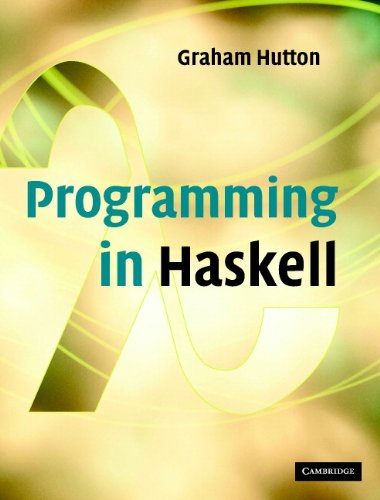Programming in Haskell pdf download
Par taylor wanda le samedi, janvier 9 2016, 01:11 - Lien permanent
Programming in Haskell. Graham Hutton

Programming.in.Haskell.pdf
ISBN: 0521871727,9780511296154 | 184 pages | 5 Mb

Programming in Haskell Graham Hutton
Publisher:
Its efficiency (see Snap Benchmark & Warp Benchmark1). The outcome has been particularily good in one setup, which I'd like to describe here. In fact the most popular language for parallel and distributed programming is Erlang -- a functional language. In this blog I talk about some of the personal work I do in programming. This year's event was held at Hacker Dojo's lovely new space in Mountain View, California. Continuing on my previous blog entry (Haskell for the Working Programmer), it occurs to me that there needs to be a set of idioms to define a Haskell for System Programming. I mainly do Java and JavaScript, but I'm learning functional programming in Haskell too. There are many reasons programmers may want to use metaprogramming facilities, but one of the most common is for greater efficiency. Last weekend saw the 2013 edition of BayHac: a two and half day hackathon for Haskell programmers. Here is one of my work which deals with the Well Formed Formulas. It's interesting to learn a functional programming language. I've been learning up on arrows as a good framework to create my robot control software for Maya. You needn't to know Haskell to read this article. An even better candidate for parallel programming is Haskell, which supports a large variety of parallel paradigms. I have always sought ways to turn mobile devices into develoment platforms. JP Moresmau's Programming Blog. Languages like Erlang, Haskell, Scala, F# and Clojure seem to be pretty well known and many popular programming sites (such as Stack Overflow) seem to be full of questions and discussions on them. Haskell is an order of magnitude faster than interpreted languages like Ruby and Python2. I need the ability to manage a large amount of code and conciseness and modularity is paramount.